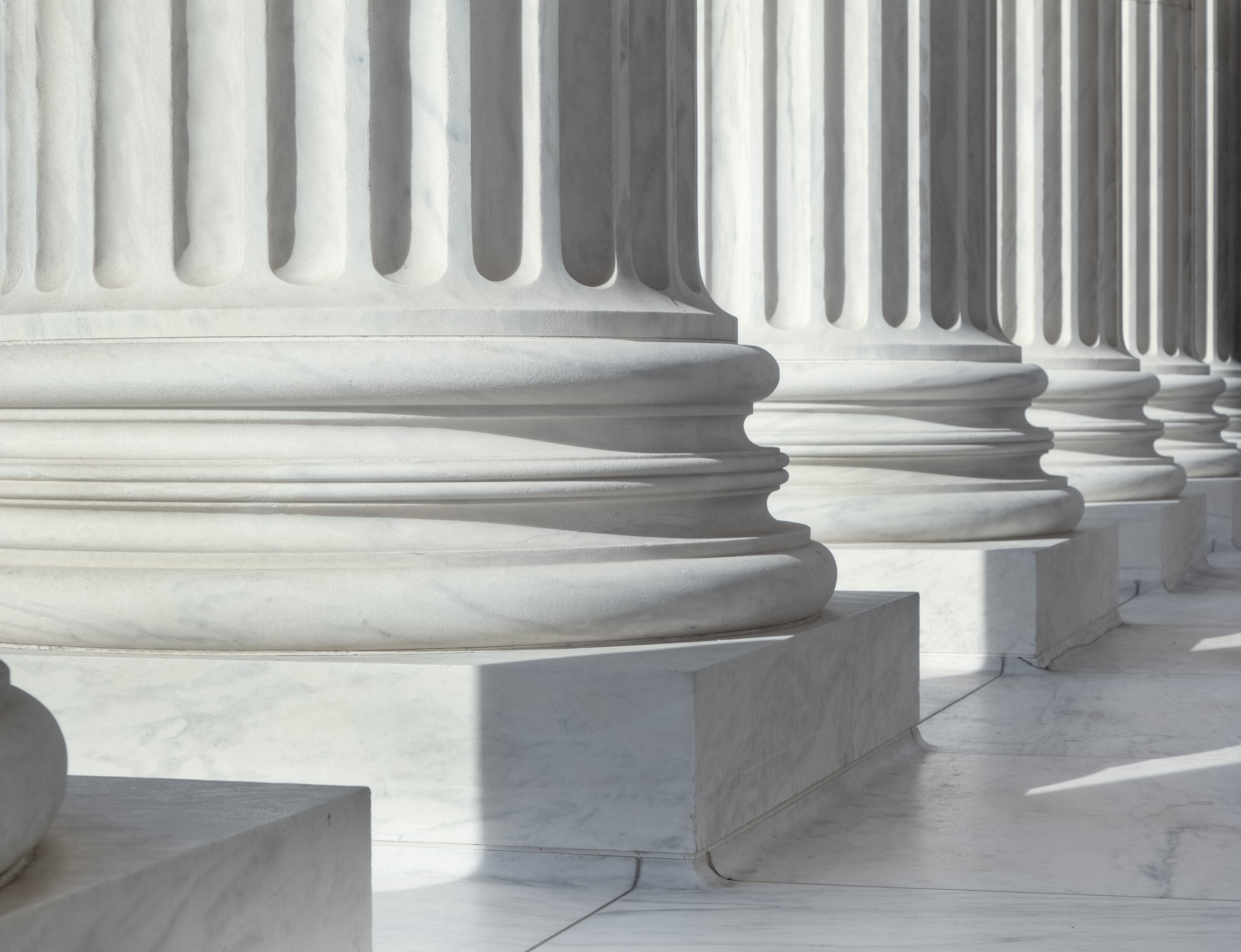CFPB’s Proposed Rule on Credit Card Late Fees Is Not What It Seems

Earlier this year, the Consumer Financial Protection Bureau (CFPB) announced a new proposal (a Notice of Proposed Rulemaking or NPRM) to lower the credit card late fee amount to $8. The proposal is part of the Administration’s misguided political campaign to conflate fees in unrelated industries as “junk.” On the surface, this proposal sounds good – no one likes “junk” – but the reality for consumers isn’t so simple and could have significant consequences long-term.
Let’s distill the myths from the facts.
MYTH: Credit card late fees are junk fees.
FACT: Credit card late fees are a necessary cost of providing financial products and services, and a majority of Americans agree they are legitimate.
According to a recent poll conducted by CBA, a majority of Americans believe credit card late fees are legitimate (57%). This stands in stark contrast to airline fees to select a seat or check a bag (18%), hotel resort fees (16%), or live event ticket service or convenience fees (12%).
By a 3 to 1 ratio, Americans also appreciate credit card late fees allow banks to provide a service. In fact, 76% of Americans agree (roughly half strongly agree) with the statement:
- “Paying on time is a personal responsibility I accept when I get a credit card. I am extended credit by the bank, and late fees are a penalty for missing a payment I agreed to pay. It’s not fair to expect that I shouldn’t be penalized, or for cardholders who pay on time to cover the costs of those who do not pay on time.”
Late fees allow banks to offer the products and services that consumers rely on.
- Banks are obligated to manage credit risk as a part of their business operations, which can include taking steps to prevent consumers from defaulting and to recoup losses when a consumer pays late.
MYTH: The proposal will not impact those who pay on time.
FACT: Reducing late fees would likely raise of the cost of – and likely limit access to – a credit product used by millions of Americans each day.
Should the CFPB finalize its proposal for an $8 late fee, banks may be forced to drastically alter their business models to mitigate the risk associated with more missed payments.
All cardholders, including those who pay on time, could see lower credit lines, tighter standards for new accounts, and increased annual percentage rates (APRs).
As a result of the $8 late fee reduction, costs will go up for all consumers, which means those who pay their credit card bill on time will be subsidizing the cost of those who don’t. In fact, in 2019, 74% of all consumer credit card accounts did not incur late fees.
- The CFPB concedes in their own report that “card holders who never pay late will not benefit from the reduction in fees and could pay more for their account as maintenance fees and other market segments rise in response.”
Banks may also be forced to stop offering credit card rewards programs which benefit consumers at all income levels.
- The CFPB admits in the NPRM that some consumers “may pay higher maintenance fees or interest or collect fewer rewards…”
- According to a recent Morning Consult poll:
- 92% of low-income card holders and 85% of those with a FICO score below 650 say cash-back rewards are valuable to their everyday life.
- 48% of voters and 57% of rewards cardholders say the rise in inflation and the cost of living has made them more interested in earning credit card rewards.
MYTH: The proposal will help people who miss payments.
FACT: Reducing late fees would remove an important motivation for consumers to make on-time credit card payments.
Late fees encourage responsible cardholder behavior and are intended to help consumers avoid missing payments.
- The CFPB accepts the idea that late fees have a deterrent effect in its NPRM, recognizing “a lower late fee amount for the first or subsequent late payments might cause more consumers to pay late.”
- The CFPB dismisses peer reviewed research demonstrating the deterrent effect of late fees, instead choosing to rely on its own unpublished, un peer-reviewed analysis.
Missing payments can negatively impact a consumer’s credit score by as much 100 points and could stay on consumer’s credit report for several years, affecting their ability to qualify for a home or auto loan. It can also trigger a higher penalty interest rate or result in the loss of special low or zero percent interest rate introductory offers from credit card companies.
- According to a recent CBA poll, survey respondents indicated that they did not understand the consequences that can follow late credit card payments. When asked about the various consequences of a late payment survey responses stated:
- Only 1/3 (33%) selected “my interest rate goes up to a temporary penalty rate.”
- Less than 1/3 (31%) chose “my credit score can go down by as many as 100 points.”
- Only 26% accepted “I lose access to special offers, like introductory low or 0% interest rates.”
- Meanwhile 46% mistakenly believed “my credit score can go down a little, by 10 or fewer points.”
- According to that same poll, nearly half of Americans mistakenly believe nothing happens if they pay their credit card bills late.
- When asked “which of the following actions do you believe happen if you pay your credit card bill 30+ days late?” nearly half (48%) mistakenly selected “I pay a late fee and nothing else happens until my next payment is due.”
MYTH: Banks profit when consumers pay late.
FACT: Banks want consumers to pay on-time because of the costs associated with defaulted consumer accounts.
In addition to late fees, which are proven to encourage responsible financial behavior, banks have invested heavily in technology and methods to encourage on-time customer payments, including:
- Payment Methods – Banks offer a number of different avenues for consumers to make payments such as in-person, at an atm, online, or on a mobile app. Autopay allows consumers to make sure that their payment is always made by the due date. Often within autopay, consumers can change their due dates to align the payment better with their individual financial situations, as well as customize frequency (meaning they could pay more often than monthly), and amount (minimum payment, statement balance, or other amount).
- Communications – Banks will often send multiple proactive payment reminders prior to the payment due date across multiple channels, including through email, push notifications in an app, and prompting users when they log into their online account. Email alerts are sent each month a credit card statement is generated. Customers can also often set their own alerts, which include, but are not limited to, payment due date notices.
- Education – Many banks have developed financial education resources that are publicly available on their websites, ranging from tactical information, such as the many ways a credit card payment can be made to broader financial literacy resources around the importance of credit scores and practical advice for improving a credit score.
MYTH: Reducing late fees will increase competition.
FACT: This proposal could force some banks out of the market, resulting in a less competitive marketplace with fewer choices for consumers.
Advancing this proposal under the guise of increasing competition may do the exact opposite. The banking industry is already among the most competitive in the world, providing consumers with the ability to choose from nearly 5,000 financial institutions to meet their needs.
Banks are also incentivized to constantly review and modernize products and services – and potential fees that come along with them – to meet evolving demand and attract new customers, fostering even greater transparency and choice for consumers.
The CFPB’s proposal is inherently anticompetitive by:
- Creating barriers to entry for new banks that may not have the requisite account history to utilize a major aspect of the proposed rule.
- Making it riskier and costlier to charge a higher late fee than the $8, potentially leading established banks to decide the risks and costs outweigh offering credit to consumers who may need it the most.
Background
The CFPB on February 1, 2023, announced its NPRM on credit card late fees, outlining its proposal to drastically alter the credit card late fee landscape. Among other policy changes, the NPRM proposes to lower the safe harbor dollar amount to an $8 threshold, eliminate the annual inflation adjustment for the safe harbor amount, and cap late fees at 25% of the required minimum periodic payment. The NPRM also solicits comments on whether the CFPB should mandate a “15-day courtesy period” that would prohibit issuing late fees within 15 calendar days after each payment due date.
The NPRM was officially published in the Federal Register on March 29, 2023, which identified May 3, 2023, as the deadline for comment letters.
To read about CBA’s response to the CFPB’s proposal, click HERE and HERE. To learn more about CBA’s survey on credit card late fees, click HERE.



